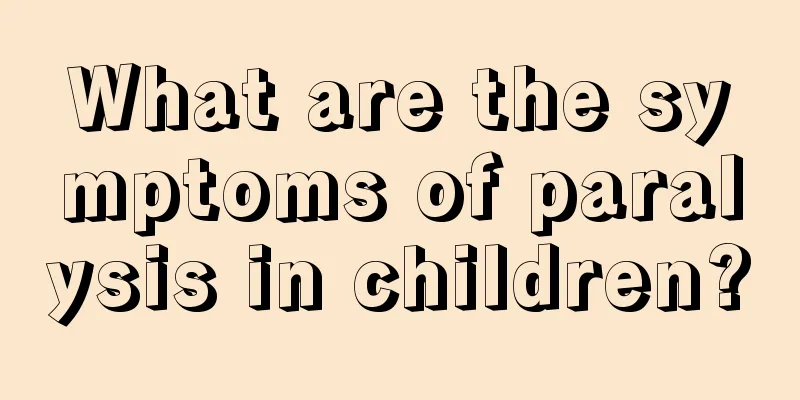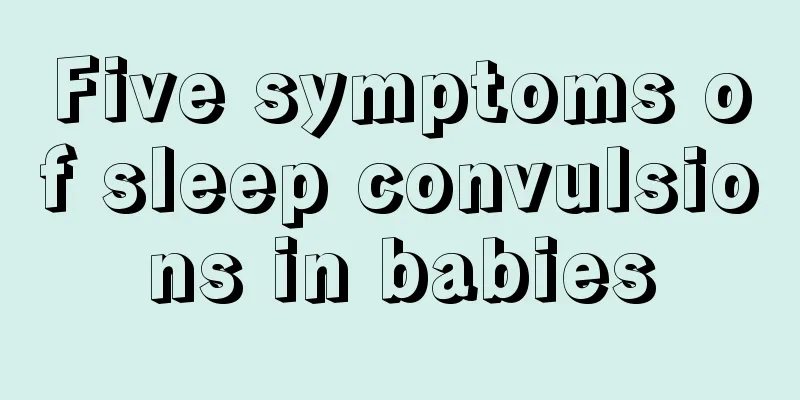Child has stomach ache after meal

|
Children have stomach pain after eating. There are many reasons for this symptom. It may be related to the child's poor gastrointestinal condition. For example, if a child has a stomach disease, he may have stomach pain after eating. In addition, the child is relatively young and his nervous system is not fully developed. At this time, it may cause intestinal spasm, which is also easy to lead to such symptoms. Let's take a look at this aspect. Child has stomach ache after meal Children's nervous system is still in the process of development, and the regulation of intestinal peristalsis is unstable. The parasympathetic nerves are easily excited, which can easily cause excessive intestinal peristalsis and spasms. Intestinal spasms can occur when encountering triggering factors such as food allergies, cold, hunger or indigestion, excessive intestinal gas, etc. Paroxysmal abdominal pain is the main manifestation of intestinal spasm. The location of the abdominal pain is not fixed, and it occurs every few minutes to tens of minutes. Each time it lasts for 3 to 5 minutes and will stop naturally without medication. When you have abdominal pain, observe your abdomen. You will often see a bulging belly, but it feels soft to the touch, with no fixed tender points and no lumps. Sometimes you can feel a cord-like object, which is actually the intestinal tract that is spasming. Abdominal pain often relieves or disappears naturally after defecation or passing of gas. Intestinal spasm is a benign abdominal pain. As time goes by, the nervous system matures and the abdominal pain will heal without medication. However, it needs to be distinguished from abdominal pain caused by other diseases. If other intestinal diseases are mistaken for intestinal spasms, it will not only cause pain to the child, but may even put his life in danger. If you are diagnosed with intestinal spasm, you can take the following measures: 1. Eliminate factors that induce intestinal spasms: such as avoiding allergic foods, placing a hot water bottle on the abdomen (be careful to prevent burns), drinking hot water, etc. For those with intestinal bloating, perform abdominal massage. For those suffering from constipation, you can use enema, glycerin suppository or soapy water enema to relieve constipation. 2. Use antispasmodics under the guidance of a doctor, such as belladonna, 654-2, etc. 3. Pay attention to prevention in daily life. For example, arrange children's diet and daily life reasonably, eat less cold drinks and foods that are difficult to digest, etc. |
<<: What to do if your child is frightened
Recommend
What causes children's thick stools?
In daily life, many parents will find that their ...
What kind of soup is nutritious for children
The physical health of children is the most conce...
At what age should children with crooked teeth be corrected?
If a child's teeth are crooked, parents will ...
What are some ways to cultivate patience in children?
Children are naturally energetic and active, so t...
Baby's stuffy nose and fever
The nasal cavity is the main channel for babies t...
What to do if a two-year-old child has yellow hair
Children should have black hair, but some parents...
What is the cause of convulsions caused by fever in children?
Parents are extremely concerned about their child...
Why are baby's eyelids red?
Red eyelids in babies are a very common problem n...
Why does it happen that babies have difficulty pooping?
Difficulty in defecation for babies is a very com...
What to do if a 7-year-old child has eczema?
Eczema is a disease that generally does not seem ...
What are the stool forms of infants at a few months old?
After birth, many babies consume breast milk and ...
Things to note when planning your baby's diet
When the baby is ten months old, we should pay sp...
How to improve children's memory
After children go to school, parents are most con...
How to treat tinnitus in teenagers
Many friends who suffer from tinnitus do not pay ...
Children's flatulence symptoms
Bloating is a condition that many children will e...









